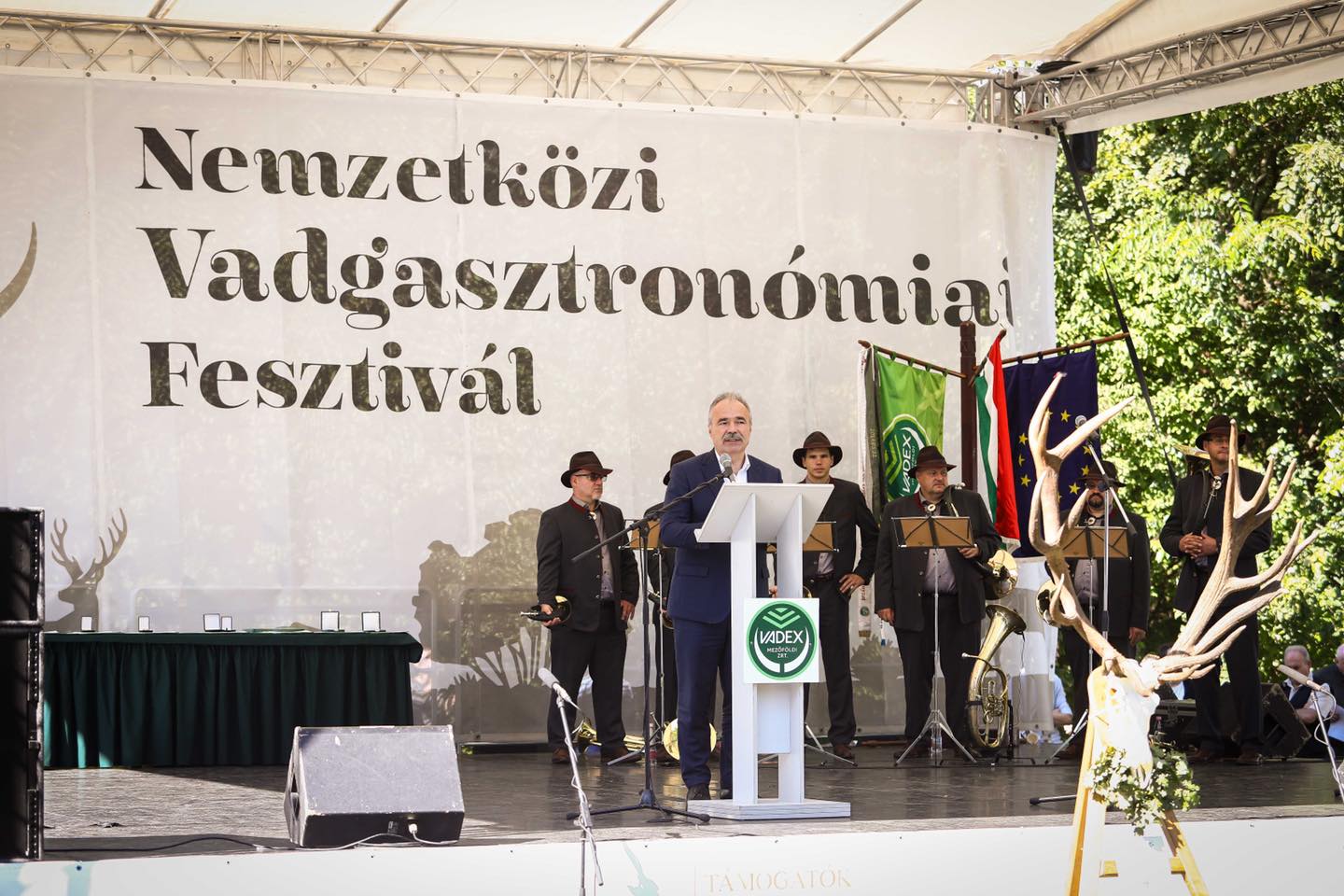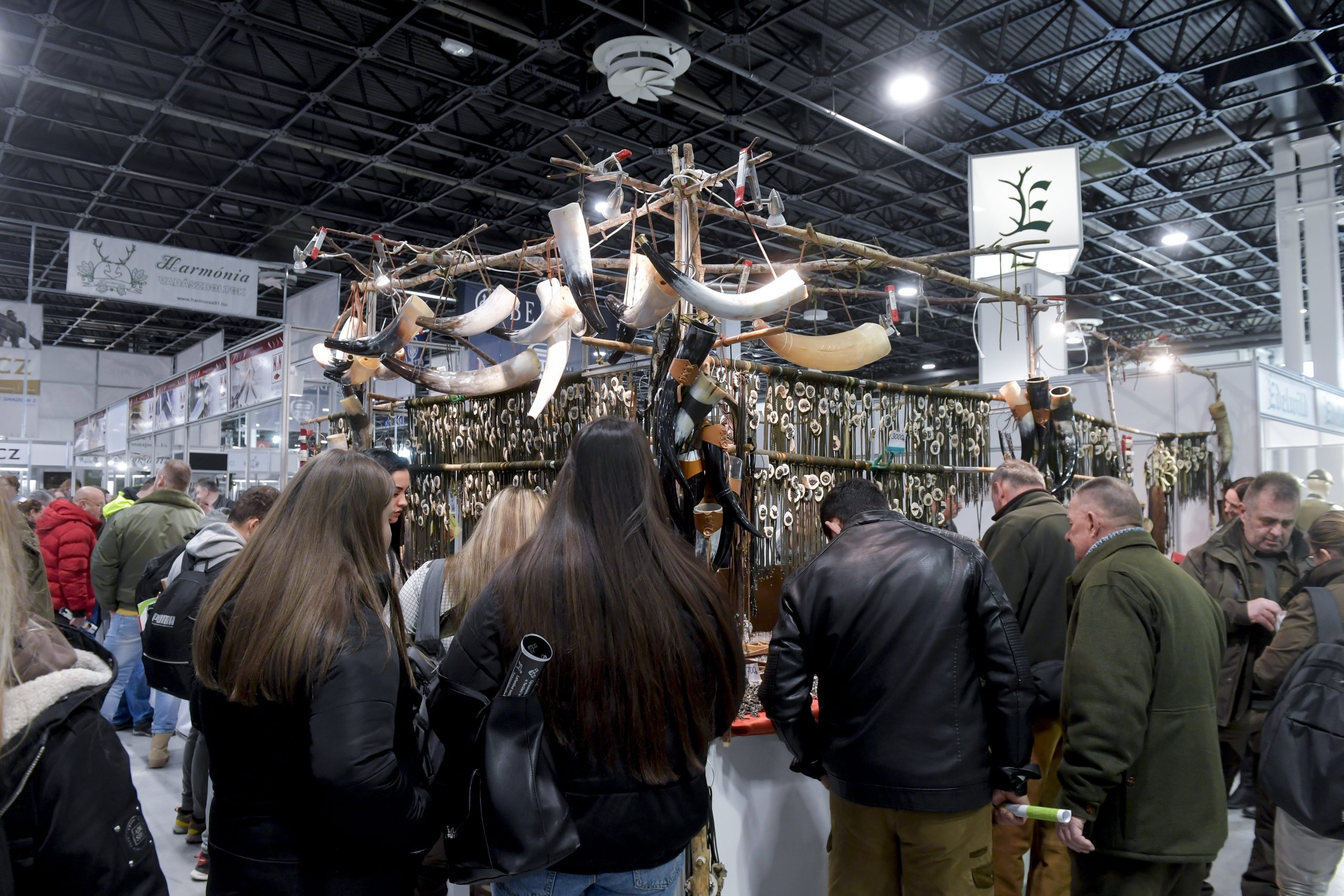
Hunting is not only culture, tradition, and nature protection, but also an activity that "produces” food, said István Nagy.Continue reading

The 29th Fishing, Hunting, and Arms International Exhibition (FeHoVa) opened on Thursday at the Hungexpo Budapest Congress and Exhibition Center. At the largest gathering of hunters, anglers, and nature lovers in the region, more than 200 exhibitors from 12 countries will present their latest products in four pavilions, while the organizers are also offering a wide range of professional programs.
In his welcome speech at the opening, Deputy Prime Minister Zsolt Semjén said that the Weapons Act and the Hunting Act were the two most important issues for the hunting community. He stressed that the Weapons Act is reasonable and practical, and the Hungarian Hunting Act is the best in the world.
In connection with recent regulation, he said that lead shot was the most topical issue, calling the Brussels regulation banning lead shot for hunters and the lead weight for anglers unreasonable, and pointing out that there had not yet been adequate studies on the effects of the proposed replacement- steel shot. He also argued that the area around the shooting ranges had been examined and that no lead contamination was present in groundwater.

Visitors can see the exhibition for four days in the Hungarian capital. Image: MTI/Koszticsák Szilárd.
Semjén touched upon the subject of the requirement of a permanent Hungarian address for gun ownership and hunting examinations, which would be abolished. The reason behind it is that it would exclude Hungarians living across the border and abroad. The deputy prime minister added that in some cases the compulsory technical testing of weapons would be abolished as well, for example in the case of inheritance.
István Nagy, the Minister of Agriculture, also spoke at the opening of the event, calling the preservation of the Earth’s biodiversity particularly important and stressing that in addition to the protection of endangered species, the management of hunted species is also a means of achieving this.
A drop in foreign contract hunting revenues, a weakening of the game meat market, a loss of income due to the emergence of African swine fever, and last year’s exceptional drought have made the sector’s operations difficult, he added. He stressed that
reducing significant game damage is an important and timely issue for the sector, and noted that hunting is key to maintaining healthy game populations with good genetic values.
Nagy recalled that the legal environment for game management in Hungary has been reformed in recent years. It has contributed to the development of hunting and game management activities in the country that are adapted to the needs and expectations of the times, but do not break with hunting traditions.
The Minister of Agriculture also referred to forest management, stressing that forests are a constantly renewing natural resource and the common heritage of the nation. He stressed that the ministry’s aim in the use of forests is to ensure that management opportunities are maintained for future generations, preserving biodiversity and viability.
This year, for the first time, the FeHoVa exhibition will feature an auction, with the proceeds going to support the Hunting Trophy Foundation’s wildlife conservation and education program. The four-day event will be held in conjunction with the 10th anniversary FeHoVa-MEOESZ International Dog Show.
Here is how the first day of the exhibition went:
Featured photo via MTI/Koszticsák Szilárd